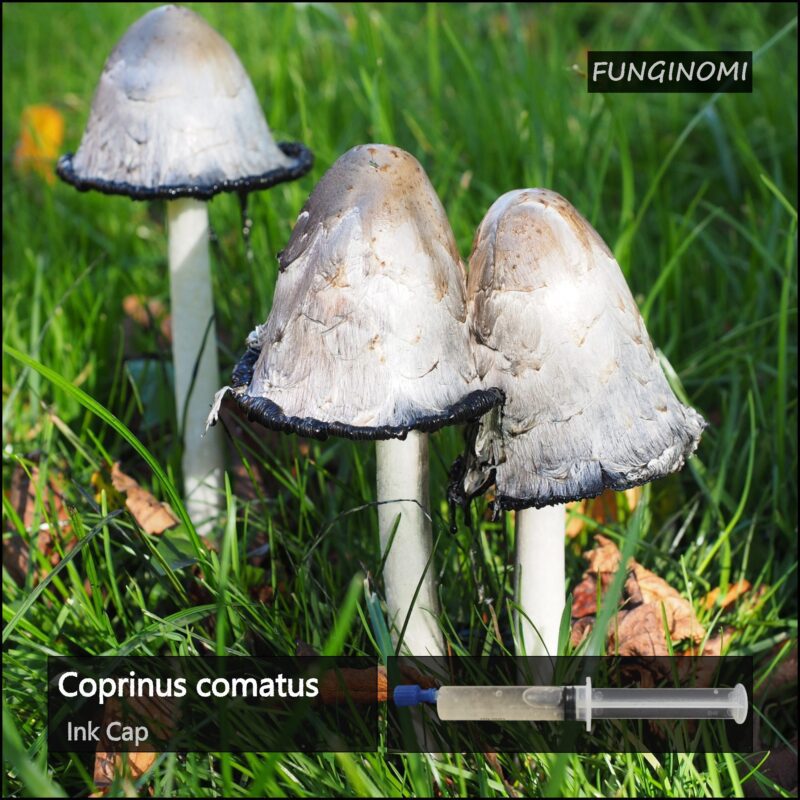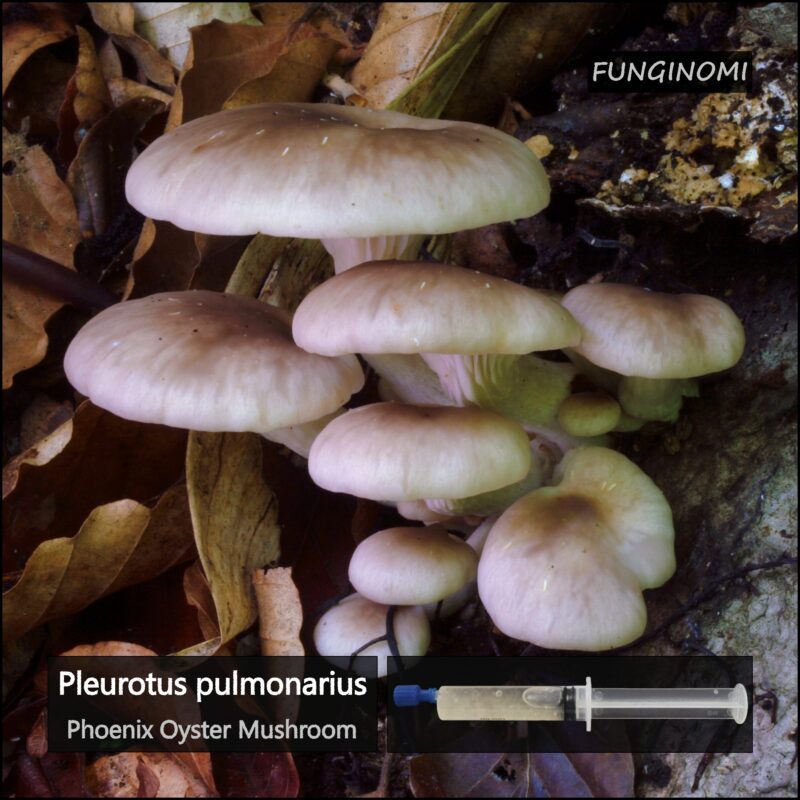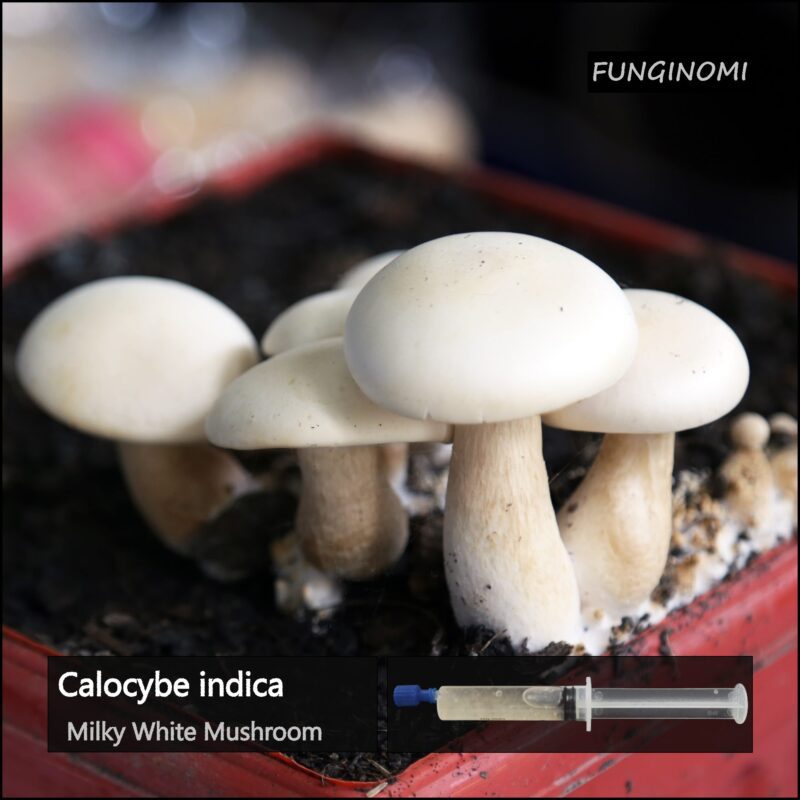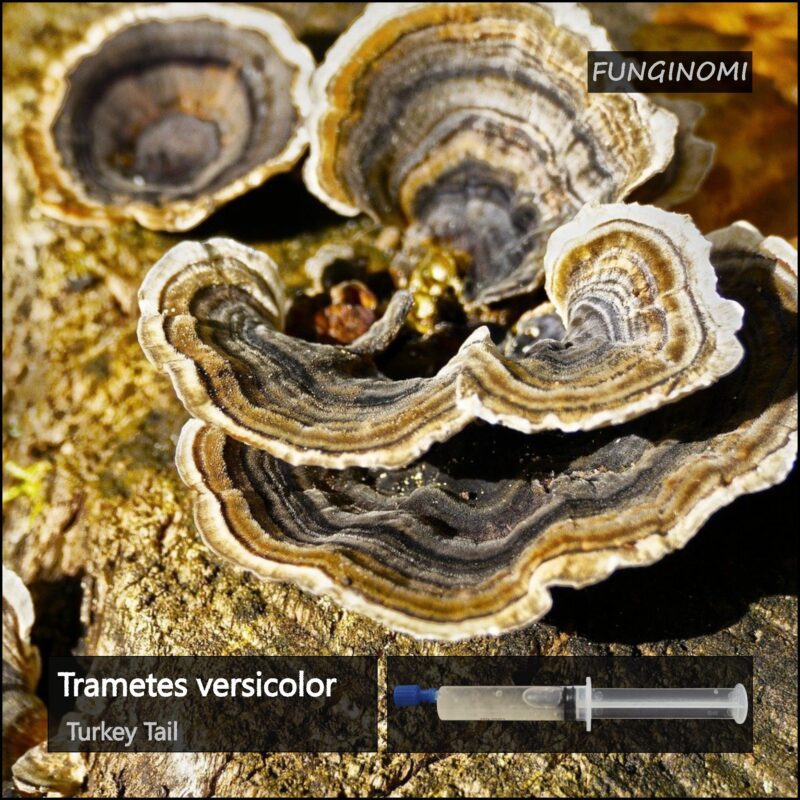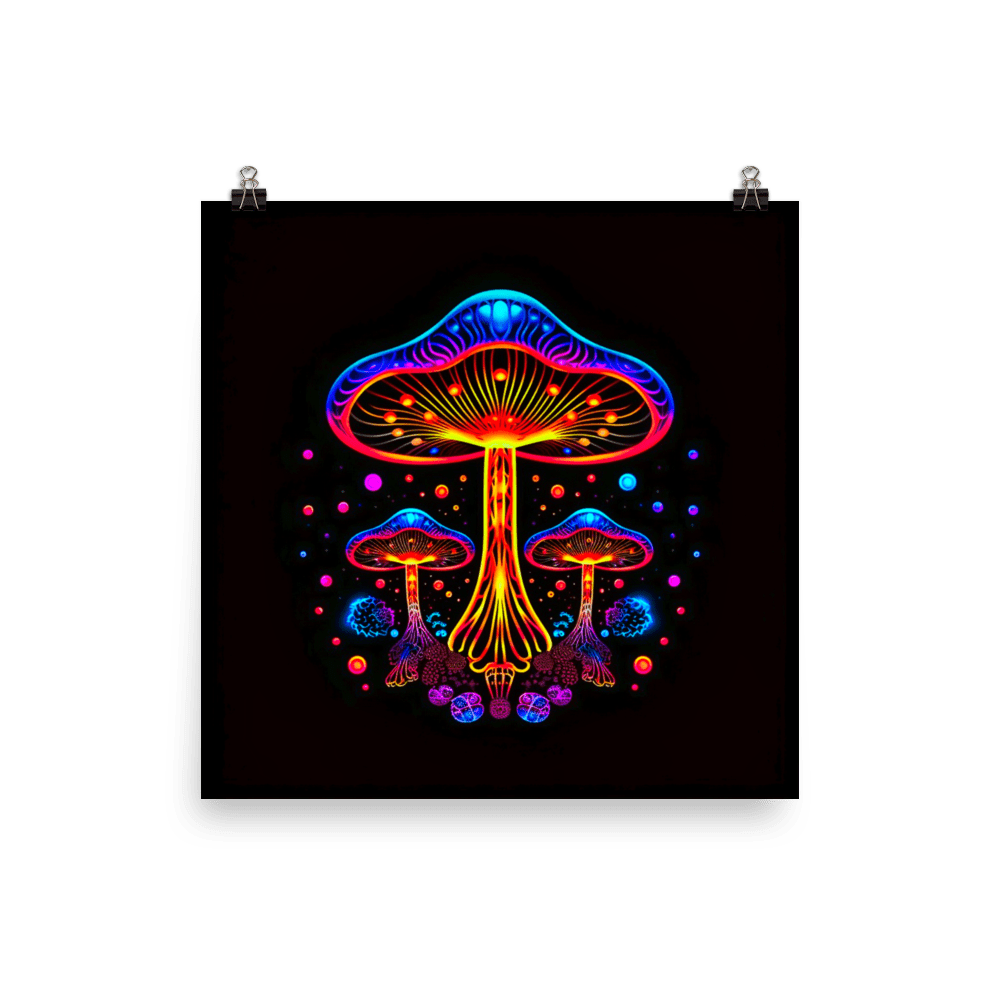The Ultimate Guide to Nutritional Mushroom Supplements
What is this Guide about?

Discover the power of nutritional mushroom supplements and their incredible health benefits. This comprehensive guide covers different types of mushroom supplements, their advantages, and expert recommendations.
Introduction to Nutritional Mushroom Supplements
Importance of a balanced diet and supplementation
Importance of a balanced diet and supplementation
In today’s fast-paced world, maintaining a healthy lifestyle is a top priority for many individuals. A key aspect of overall well-being is a balanced diet, which provides the necessary nutrients for optimal health. While consuming a variety of fruits, vegetables, whole grains, and lean proteins is essential, there is a growing interest in incorporating nutritional supplements to further enhance our nutritional intake.
One such category of supplements that has gained significant attention is nutritional mushroom supplements. These supplements offer a wide range of health benefits and are rich in bioactive compounds that can support various bodily functions. In this guide, we will explore the importance of a balanced diet and the role of nutritional mushroom supplementation in achieving optimal health.
The Importance of a Balanced Diet
A balanced diet forms the foundation of good health. It provides the essential macronutrients (carbohydrates, proteins, and fats) and micronutrients (vitamins and minerals) needed for proper functioning of the body. A diet rich in diverse foods ensures that we obtain all the necessary nutrients in adequate amounts.
Brief overview of nutritional mushroom supplements
Brief overview of nutritional mushroom supplements
Nutritional mushroom supplements have gained significant popularity for their potential health benefits and unique properties. These supplements are derived from various types of mushrooms, each offering its own set of advantages. Here’s a brief overview of nutritional mushroom supplements:
-
Reishi Mushroom: Reishi mushrooms are known for their immune-boosting properties and are often used to support overall well-being. They contain bioactive compounds that may help reduce inflammation, promote relaxation, and support healthy sleep patterns.
-
Cordyceps Mushroom: Cordyceps mushrooms are recognized for their potential to enhance energy and vitality. They are believed to support physical endurance, improve oxygen utilization, and contribute to overall stamina.
-
Lion’s Mane Mushroom: Lion’s Mane mushrooms are renowned for their potential cognitive benefits. They are thought to support brain health, memory, and focus. Lion’s Mane supplements are often used to support mental clarity and concentration.
-
Chaga Mushroom: Chaga mushrooms are rich in antioxidants and are commonly used to support immune function and overall wellness. They are believed to have anti-inflammatory properties and may help promote healthy skin.
-
Shiitake Mushroom: Shiitake mushrooms are popular for their potential cardiovascular benefits. They contain compounds that may help maintain healthy cholesterol levels and support heart health. Shiitake supplements are also known for their immune-supportive properties.
-
Maitake Mushroom: Maitake mushrooms are often used for their potential to support immune function. They contain polysaccharides that may enhance immune response and have been studied for their potential anti-cancer properties.
Remember, it’s always important to consult with a healthcare professional before incorporating any new supplements into your routine.
Growing popularity and health trends
Growing popularity and health trends
In recent years, there has been a notable surge in the popularity of health and wellness practices. People are increasingly becoming conscious of the impact of their lifestyle choices on their overall well-being. This has led to the emergence of various health trends aimed at promoting a balanced and wholesome lifestyle. Here are some of the growing popularity and health trends:
-
Plant-Based Diets: Plant-based diets, including vegetarian and vegan lifestyles, have gained traction due to their potential health benefits and ethical considerations. These diets emphasize consuming whole plant foods, such as fruits, vegetables, legumes, and grains,
-
Functional Foods: Functional foods are those that offer additional health benefits beyond basic nutrition. Examples include nutritional mushroom supplements, probiotics, turmeric, and chia seeds. These foods are often incorporated into daily diets to support specific health goals.
-
Mindfulness and Meditation: Practices like mindfulness and meditation have gained recognition for their ability to reduce stress, promote mental well-being, and enhance focus. These techniques involve being present in the moment and cultivating a calm and aware state of mind.
-
Fitness and Active Lifestyles: The importance of regular physical activity and exercise has gained widespread recognition. People are increasingly embracing fitness activities such as yoga, pilates, HIIT, and outdoor sports to maintain an active and healthy lifestyle.
-
Sustainable and Eco-Friendly Choices: With growing environmental concerns, there is a rising focus on sustainable and eco-friendly practices. This includes choosing organic and locally sourced foods, reducing single-use plastic, and adopting reusable and recyclable products.
By incorporating these health trends into daily life, individuals are striving to achieve a balanced and holistic approach to their well-being. It is important to remember that personal preferences and individual needs may vary, so it’s essential to make choices that align with your own health goals and values.
Benefits of Nutritional Mushroom Supplements
Immune system support and boosting overall health
Immune system support and boosting overall health
Nutritional mushroom supplements offer a range of benefits, particularly when it comes to immune system support and enhancing overall health. These supplements are packed with bioactive compounds that have been found to have immune-boosting properties and other positive effects on the body. Here are the key benefits of incorporating nutritional mushroom supplements into your routine:
-
Immune System Support: Nutritional mushroom supplements, such as reishi, shiitake, and maitake, contain beta-glucans and other immune-enhancing compounds. These substances stimulate the activity of immune cells, supporting the body’s natural defense mechanisms and promoting a strong immune system.
-
Antioxidant Properties: Many nutritional mushroom supplements are rich in antioxidants, including chaga and cordyceps mushrooms. Antioxidants help neutralize harmful free radicals in the body, reducing oxidative stress and inflammation. By protecting cells from damage, these supplements contribute to overall health and well-being.
-
Enhanced Energy and Vitality: Certain nutritional mushroom supplements, such as cordyceps, have been traditionally used to improve energy levels and enhance physical performance. Cordyceps are believed to support oxygen utilization and ATP production, leading to increased endurance, stamina, and vitality.
-
Brain Health and Cognitive Function: Some mushroom supplements, like lion’s mane, have shown promising effects on brain health. Lion’s mane mushrooms contain compounds that may stimulate the production of nerve growth factor (NGF), a protein essential for brain cell growth and function. These supplements have been linked to improved memory, focus, and overall cognitive function.
-
Adaptogenic Properties: Many nutritional mushroom supplements, including reishi and cordyceps, possess adaptogenic properties. Adaptogens help the body adapt and respond to stress more effectively, promoting balance and resilience. These supplements can support the body’s stress response, hormone regulation, and overall mental and physical well-being.
When incorporating nutritional mushroom supplements into your routine, it’s important to choose high-quality products from reputable sources. Always follow the recommended dosage and consult with a healthcare professional if you have any underlying health conditions or are taking medications. With their immune system support and potential health-boosting properties, nutritional mushroom supplements can be a valuable addition to a healthy lifestyle.
Adaptogenic properties for stress management
Adaptogenic properties for stress management
In today’s fast-paced world, stress has become a common part of daily life for many individuals. Managing stress effectively is crucial for maintaining overall well-being. This is where adaptogens, including certain nutritional mushroom supplements, play a significant role. Adaptogens are natural substances that help the body adapt to and cope with stressors more efficiently. Here’s how nutritional mushroom supplements with adaptogenic properties can support stress management:
-
Balancing Stress Response: Adaptogens, such as reishi and cordyceps mushrooms, have been traditionally used to balance the body’s stress response. They can help regulate stress hormones like cortisol, preventing excessive stress-induced responses and promoting a more balanced physiological state.
-
Enhancing Energy and Stamina: Chronic stress can lead to fatigue and reduced energy levels. Certain nutritional mushroom supplements, like cordyceps, are known for their potential to enhance energy and stamina. By supporting healthy adrenal function and improving oxygen utilization, these supplements can help combat fatigue and increase vitality.
-
Promoting Mental Clarity and Focus: Stress can negatively impact cognitive function, leading to difficulties with concentration and mental clarity. Mushroom supplements such as lion’s mane are believed to support brain health and improve cognitive function. They may enhance memory, focus, and overall mental performance, enabling better stress management.
-
Boosting Mood and Emotional Well-being: Chronic stress often takes a toll on emotional well-being, leading to mood disturbances and anxiety. Some nutritional mushroom supplements, including reishi, are known for their potential to promote relaxation and emotional balance. They may help reduce symptoms of anxiety and improve overall mood.
-
Supporting Immune Function: Prolonged stress weakens the immune system, making individuals more susceptible to illnesses. Nutritional mushroom supplements with adaptogenic properties, such as shiitake and maitake, can support immune function. They contain bioactive compounds that help regulate immune responses, promoting a strong and resilient immune system.
When using nutritional mushroom supplements for stress management, it’s important to follow the recommended dosage guidelines and consult with a healthcare professional if you have any underlying health conditions or are taking medications. Incorporating these adaptogenic supplements into a holistic stress management routine, along with other self-care practices like exercise, mindfulness, and adequate sleep, can contribute to a healthier response to stress and improved overall well-being.
Anti-inflammatory and antioxidant effects
Anti-inflammatory and antioxidant effects
Nutritional mushroom supplements offer not only immune system support but also anti-inflammatory and antioxidant effects, making them valuable for promoting overall health and well-being. Here’s how these supplements can provide anti-inflammatory and antioxidant benefits:
-
Anti-inflammatory Properties: Many nutritional mushroom supplements, such as reishi and shiitake, contain bioactive compounds that exhibit anti-inflammatory properties. These compounds can help reduce chronic inflammation in the body, which is linked to various health issues, including cardiovascular disease, diabetes, and certain types of cancer. By modulating inflammatory pathways, these supplements may contribute to a healthier inflammatory response.
-
Antioxidant Activity: Nutritional mushroom supplements are rich in antioxidants, including various phenolic compounds, flavonoids, and polysaccharides. Antioxidants help neutralize harmful free radicals, unstable molecules that can damage cells and contribute to oxidative stress. By reducing oxidative stress, these supplements may help protect against cellular damage, promote healthy aging, and support overall well-being.
-
Cellular Protection: The antioxidant compounds found in nutritional mushroom supplements, such as chaga and cordyceps, have been shown to have protective effects on cells. They can help safeguard cellular components like DNA, proteins, and lipids from oxidative damage caused by free radicals and environmental factors. By preserving cellular integrity, these supplements may contribute to the maintenance of healthy cellular function.
-
Heart Health Support: Chronic inflammation and oxidative stress are risk factors for cardiovascular diseases. Certain nutritional mushroom supplements, such as maitake, have shown potential in supporting heart health. They may help maintain healthy cholesterol levels, support blood pressure regulation, and improve overall cardiovascular function.
-
Skin Health Enhancement: The antioxidant and anti-inflammatory properties of nutritional mushroom supplements can also benefit skin health. By combating oxidative stress and reducing inflammation, these supplements may contribute to a healthier complexion and help manage skin conditions like acne, eczema, and premature aging.
Incorporating nutritional mushroom supplements into a balanced diet, alongside other healthy lifestyle practices, can provide anti-inflammatory and antioxidant effects. It’s important to choose high-quality supplements from reputable sources and consult with a healthcare professional if you have any specific health concerns or are taking medications. By harnessing the natural power of these mushrooms, you can support your body’s anti-inflammatory processes and promote overall wellness.
Improved cognitive function and mental well-being
Improved cognitive function and mental well-being
In addition to their immune-boosting, anti-inflammatory, and antioxidant properties, nutritional mushroom supplements have been associated with improved cognitive function and mental well-being. These supplements contain unique compounds that may enhance brain health and support mental processes. Here’s how nutritional mushroom supplements can contribute to improved cognitive function and mental well-being:
-
Enhanced Brain Health: Certain mushroom supplements, such as lion’s mane, have been traditionally used to support brain health. Lion’s mane mushrooms contain compounds that may stimulate the production of nerve growth factor (NGF), a protein essential for brain cell growth and function. By promoting the growth and maintenance of neurons, these supplements have been linked to improved memory, focus, and overall cognitive function.
-
Support for Mental Clarity and Focus: Many individuals experience challenges with mental clarity and focus due to stress, aging, or other factors. Nutritional mushroom supplements, such as lion’s mane and cordyceps, have been recognized for their potential to enhance mental clarity and focus. They may help reduce brain fog, increase attention span, and improve overall cognitive performance.
-
Mood Enhancement: Mental well-being is closely intertwined with mood. Some mushroom supplements, including reishi and cordyceps, are known for their adaptogenic properties that can support stress management and promote emotional balance. By reducing stress and promoting relaxation, these supplements may help improve mood and overall mental well-being.
-
Neuroprotective Effects: Nutritional mushroom supplements contain various bioactive compounds that possess neuroprotective properties. These compounds can help protect brain cells from damage caused by oxidative stress and inflammation, which are linked to neurodegenerative conditions. By supporting brain health and protecting against age-related cognitive decline, these supplements may contribute to long-term mental well-being.
-
Improved Stress Response: Chronic stress can have detrimental effects on cognitive function and mental well-being. Adaptogenic mushroom supplements, such as reishi and cordyceps, can help modulate the body’s stress response, supporting a healthier physiological and psychological state. By promoting stress resilience, these supplements may contribute to better mental well-being and cognitive performance.
Incorporating nutritional mushroom supplements into a well-rounded wellness routine, alongside other healthy lifestyle habits like regular exercise and a balanced diet, may help enhance cognitive function and promote mental well-being. It’s important to choose high-quality supplements from reputable sources and consult with a healthcare professional if you have any specific concerns or medical conditions. By prioritizing brain health and mental well-being, you can support your cognitive abilities and overall quality of life.
Enhanced energy and athletic performance
Enhanced energy and athletic performance
When it comes to physical performance and energy levels, nutritional mushroom supplements can be a valuable addition to an athlete’s regimen. These supplements offer unique compounds that may enhance energy production, improve stamina, and support overall athletic performance. Here’s how nutritional mushroom supplements can contribute to enhanced energy and athletic performance:
-
Increased Oxygen Utilization: Certain mushroom supplements, such as cordyceps, are well-known for their potential to enhance energy and stamina. Cordyceps mushrooms have been traditionally used in sports and athletic performance due to their ability to improve oxygen utilization. By supporting efficient oxygen delivery to the muscles, these supplements may enhance endurance and delay fatigue during physical activity.
-
Improved ATP Production: Adenosine triphosphate (ATP) is the primary energy source for cellular processes in the body. Nutritional mushroom supplements, including cordyceps, chaga, and lion’s mane, contain compounds that may help improve ATP production. By supporting efficient energy production at the cellular level, these supplements can provide a sustained energy boost for athletic performance.
-
Reduced Exercise-Induced Inflammation: Intense physical exercise can lead to temporary inflammation in the body. Nutritional mushroom supplements, such as reishi and shiitake, have anti-inflammatory properties that may help reduce exercise-induced inflammation. By modulating the inflammatory response, these supplements can support faster recovery and help maintain optimal performance.
-
Support for Muscle Recovery: Intense training sessions can lead to muscle damage and soreness. Nutritional mushroom supplements, such as reishi and maitake, contain compounds that possess antioxidant properties. These antioxidants can help reduce oxidative stress and support muscle recovery after exercise, allowing athletes to bounce back faster and perform at their best.
-
Enhanced Focus and Mental Stamina: Athletic performance is not solely dependent on physical factors. Mental focus and stamina also play crucial roles. Some mushroom supplements, such as lion’s mane, have been associated with improved cognitive function and mental clarity. By supporting brain health, these supplements may enhance focus, concentration, and overall mental stamina during training and competition.
It’s important to note that nutritional mushroom supplements should be used in conjunction with a well-rounded training program and a balanced diet. Consult with a healthcare professional or a sports nutritionist to determine the right dosage and timing for incorporating these supplements into your athletic routine. By harnessing the potential benefits of nutritional mushroom supplements, athletes can experience improved energy levels, enhanced performance, and better overall athletic outcomes.
Common Types of Nutritional Mushroom Supplements
Reishi mushrooms: Immune support and stress reduction
Reishi mushrooms: Immune support and stress reduction
Among the various types of nutritional mushroom supplements available, Reishi mushrooms stand out for their remarkable health benefits. Reishi mushrooms, also known as “the mushroom of immortality,” have been used in traditional medicine for centuries due to their potential to support the immune system and reduce stress. Here’s a closer look at the benefits of Reishi mushrooms:
1. Immune System Support: Reishi mushrooms are renowned for their immune-boosting properties. They contain bioactive compounds, such as polysaccharides and triterpenes, that stimulate and modulate the immune system. By enhancing the activity of immune cells and promoting the production of immune-regulating substances, Reishi mushrooms can help strengthen the body’s defense against infections and diseases.
2. Adaptogenic Effects: Reishi mushrooms possess adaptogenic properties, meaning they can help the body adapt and cope with stress. These mushrooms contain compounds that support the body’s stress response and help promote a sense of calm and relaxation. By reducing stress levels, Reishi mushrooms may contribute to overall well-being and mental balance.
Incorporating Reishi mushrooms into your dietary routine through nutritional mushroom supplements can be a valuable way to support your immune system and manage stress. As with any supplement, it’s important to choose high-quality products from reputable sources. Consult with a healthcare professional before adding Reishi mushrooms or any new supplements to your regimen, especially if you have underlying health conditions or are taking medications. By harnessing the potential benefits of Reishi mushrooms, you can prioritize your immune health and promote a sense of calm in your daily life.
Chaga mushrooms: Antioxidant powerhouse and cellular health
Chaga mushrooms: Antioxidant powerhouse and cellular health
Another notable type of nutritional mushroom supplement is Chaga mushrooms. These mushrooms are known for their potent antioxidant properties and their potential to support cellular health. Let’s explore the benefits of Chaga mushrooms in more detail:
1. Antioxidant Activity: Chaga mushrooms are rich in antioxidants, such as polyphenols and melanin, which help protect the body against oxidative stress caused by free radicals. By neutralizing free radicals, Chaga mushrooms can help reduce cellular damage and support overall well-being.
2. Cellular Health Support: The antioxidants present in Chaga mushrooms can contribute to cellular health and help maintain the integrity of cells throughout the body. Healthy cells are essential for optimal organ function and overall vitality.
3. Immune System Modulation: Chaga mushrooms have been traditionally used to support immune function. The bioactive compounds found in Chaga mushrooms may help modulate the immune system, promoting a balanced immune response. A well-regulated immune system is crucial for defending against pathogens and maintaining overall health.
4. Anti-Inflammatory Properties: Inflammation is a natural response of the body to injury or infection. However, chronic inflammation can contribute to various health issues. Chaga mushrooms contain anti-inflammatory compounds that may help reduce inflammation and support a healthy inflammatory response.
5. Potential Cancer-Fighting Properties: Some preliminary studies suggest that Chaga mushrooms may possess anti-cancer properties. The compounds found in Chaga mushrooms, including betulinic acid and polysaccharides, have shown potential in inhibiting the growth of cancer cells in laboratory studies. However, further research is needed to fully understand the effects of Chaga mushrooms on cancer prevention and treatment.
Incorporating Chaga mushrooms into your wellness routine through nutritional mushroom supplements can provide a natural way to boost your antioxidant intake and support cellular health. As with any supplement, it’s important to choose high-quality products from reputable sources. Consulting with a healthcare professional before adding Chaga mushrooms or any new supplements to your regimen is advisable, especially if you have underlying health conditions or are taking medications. By harnessing the potential benefits of Chaga mushrooms, you can support your overall well-being and cellular vitality.
Lion’s Mane mushrooms: Cognitive enhancement and nerve regeneration
Lion’s Mane mushrooms: Cognitive enhancement and nerve regeneration
When it comes to cognitive health and nerve regeneration, Lion’s Mane mushrooms have gained significant attention. These unique mushrooms have been recognized for their potential to enhance cognitive function and promote the regeneration of nerves. Let’s delve into the benefits of Lion’s Mane mushrooms:
1. Cognitive Enhancement: Lion’s Mane mushrooms contain bioactive compounds that may support cognitive function and mental clarity. These compounds stimulate the production of nerve growth factor (NGF), a protein crucial for the growth and maintenance of neurons. By promoting NGF production, Lion’s Mane mushrooms may help improve memory, focus, and overall cognitive performance.
2. Nerve Regeneration: Lion’s Mane mushrooms have shown promise in supporting nerve regeneration. Research suggests that the bioactive compounds in Lion’s Mane mushrooms can stimulate the growth and repair of damaged nerves. This regenerative effect has potential implications for individuals with neurological conditions and those recovering from nerve injuries.
3. Mood and Emotional Well-being: Lion’s Mane mushrooms may also contribute to mood enhancement and emotional well-being. Some studies suggest that Lion’s Mane mushrooms can support a healthy stress response by reducing levels of stress hormones, such as cortisol. By promoting relaxation and reducing anxiety, Lion’s Mane mushrooms may support a positive mood and overall emotional balance.
4. Neuroprotective Properties: The bioactive compounds in Lion’s Mane mushrooms possess neuroprotective properties, meaning they can help protect brain cells from damage caused by oxidative stress and inflammation. This protective effect may have implications for age-related cognitive decline and neurodegenerative conditions.
5. Focus and Mental Clarity: Lion’s Mane mushrooms are often praised for their potential to improve focus and mental clarity. By supporting brain health and neuronal function, Lion’s Mane mushrooms may help reduce brain fog, enhance concentration, and promote mental sharpness.
Incorporating Lion’s Mane mushrooms into your dietary routine through nutritional mushroom supplements or incorporating them into your meals can provide a natural way to support cognitive function and nerve regeneration. As with any supplement, it’s important to choose high-quality products from reputable sources. Consulting with a healthcare professional before adding Lion’s Mane mushrooms or any new supplements to your regimen is advisable, especially if you have underlying health conditions or are taking medications. By harnessing the potential benefits of Lion’s Mane mushrooms, you can support your cognitive health, nerve regeneration, and overall well-being.
Cordyceps mushrooms: Increased energy and exercise performance
Cordyceps mushrooms: Increased energy and exercise performance
Cordyceps mushrooms are well-known for their potential to enhance energy levels and improve exercise performance. These unique mushrooms have been used in traditional medicine for centuries and are now gaining popularity in the fitness and sports communities. Let’s explore the benefits of Cordyceps mushrooms:
1. Enhanced Energy Production: Cordyceps mushrooms contain active compounds that can help improve energy production at the cellular level. They have been found to increase the production of adenosine triphosphate (ATP), which is the primary source of energy for our cells. By enhancing ATP production, Cordyceps mushrooms can provide a natural energy boost and improve stamina during physical activity.
2. Improved Oxygen Utilization: Cordyceps mushrooms have been traditionally used to support oxygen utilization in the body. They have the potential to increase the uptake and utilization of oxygen by the cells, particularly in the muscles. This enhanced oxygen delivery can help improve endurance and delay the onset of fatigue during exercise.
3. Increased Exercise Performance: Due to their energy-enhancing properties, Cordyceps mushrooms can contribute to improved exercise performance. They may help athletes and fitness enthusiasts push their limits, increase their workout intensity, and achieve better results. By boosting energy levels and enhancing endurance, Cordyceps mushrooms can support optimal physical performance.
4. Respiratory Function Support: Cordyceps mushrooms have been traditionally used to support respiratory function. They may help improve lung capacity and oxygen uptake, making it easier to breathe during exercise. This can be particularly beneficial for individuals engaging in cardiovascular activities that require efficient respiratory function.
5. Adaptogenic Effects: Cordyceps mushrooms possess adaptogenic properties, meaning they can help the body adapt and cope with stress. Regular consumption of Cordyceps mushrooms may support a balanced stress response, reduce exercise-induced oxidative stress, and promote overall well-being.
Incorporating Cordyceps mushrooms into your routine through nutritional mushroom supplements or incorporating them into your meals can provide a natural way to enhance energy levels and improve exercise performance. It’s essential to choose high-quality Cordyceps mushroom products from reputable sources. If you have any underlying health conditions or are taking medications, consult with a healthcare professional before adding Cordyceps mushrooms or any new supplements to your regimen. By harnessing the potential benefits of Cordyceps mushrooms, you can elevate your energy levels, optimize exercise performance, and support your fitness goals.
Shiitake mushrooms: Cardiovascular health and immune modulation
Shiitake mushrooms: Cardiovascular health and immune modulation
Shiitake mushrooms are highly regarded for their potential to promote cardiovascular health and support immune modulation. These mushrooms, known for their savory taste and meaty texture, offer numerous benefits when incorporated into a well-rounded diet. Let’s explore the advantages of Shiitake mushrooms:
1. Cardiovascular Health: Shiitake mushrooms contain compounds such as eritadenine and beta-glucans that have been associated with cardiovascular benefits. Eritadenine has been found to help lower cholesterol levels by inhibiting an enzyme involved in cholesterol synthesis. The beta-glucans in Shiitake mushrooms may help regulate blood pressure and improve blood circulation, promoting overall cardiovascular well-being.
2. Immune Modulation: Shiitake mushrooms have long been used in traditional medicine for their immune-boosting properties. They contain bioactive compounds like polysaccharides and lentinan that can enhance the activity of immune cells and help modulate the immune response. This immune modulation may contribute to a balanced immune system and better defense against infections.
3. Antioxidant Effects: Shiitake mushrooms possess notable antioxidant properties due to their content of various antioxidants, including polyphenols and vitamin C. Antioxidants help neutralize harmful free radicals in the body, reducing oxidative stress and potentially protecting cells from damage. By incorporating Shiitake mushrooms into your diet, you can increase your intake of these beneficial antioxidants.
4. Nutritional Value: Shiitake mushrooms are a nutrient-dense food. They are a good source of vitamins such as B vitamins (including B6, pantothenic acid, and folate), vitamin D, and minerals such as copper, selenium, and zinc. These nutrients play important roles in supporting overall health, including cardiovascular function and immune system functioning.
5. Anti-Inflammatory Properties: Chronic inflammation is linked to various health conditions. Shiitake mushrooms possess anti-inflammatory properties due to the presence of compounds like ergothioneine and beta-glucans. By reducing inflammation, Shiitake mushrooms may contribute to better cardiovascular health and overall well-being.
Incorporating Shiitake mushrooms into your meals or utilizing nutritional mushroom supplements can provide a natural way to support cardiovascular health and promote immune modulation. Remember to choose fresh or high-quality dried Shiitake mushrooms from reputable sources. If you have any underlying health conditions or are taking medications, it’s advisable to consult with a healthcare professional before making significant dietary changes. By harnessing the potential benefits of Shiitake mushrooms, you can nourish your body, support cardiovascular wellness, and bolster your immune system.
How to Choose the Right Mushroom Supplement
Quality and sourcing considerations
Quality and sourcing considerations
When selecting a mushroom supplement, it’s important to consider several factors to ensure you are choosing a product of high quality and reliable sourcing. Here are key considerations to help you make an informed decision:
-
Mushroom Species and Extract Type: Look for supplements that clearly specify the mushroom species used. Different species have varying benefits, so choose one that aligns with your specific health goals. Additionally, check the extract type, as certain extracts concentrate the bioactive compounds for enhanced potency.
-
Organic and Sustainable Farming: Prioritize supplements made from mushrooms grown using organic and sustainable farming practices. Organic cultivation ensures the absence of harmful pesticides and synthetic additives. Sustainable practices support environmental health and the long-term availability of high-quality mushrooms.
-
Quality Assurance and Third-Party Testing: Choose a supplement brand that emphasizes quality assurance and conducts third-party testing. This ensures the supplement meets stringent quality standards, is free from contaminants, and contains the specified ingredients in appropriate concentrations.
-
Source of Mushrooms: Consider the source of the mushrooms used in the supplement. Transparent sourcing information indicates a commitment to quality and traceability. Look for reputable suppliers or companies that cultivate their own mushrooms.
-
Extraction Method: Pay attention to the extraction method used to obtain the beneficial compounds from the mushrooms. Common methods include hot water extraction, dual extraction, or mycelium biomass extraction. Each method may yield different concentrations and types of bioactive compounds.
By taking these important factors into account, you can confidently choose a mushroom supplement that meets your standards for quality and sourcing. Remember to consult with a healthcare professional or a qualified practitioner before starting any new dietary supplements.
Certifications and third-party testing
Certifications and third-party testing
When choosing a mushroom supplement, consider the following factors to ensure quality, purity, and safety:
-
Certifications: Look for supplements with reputable certifications such as USDA Organic, Non-GMO Project Verified, or Good Manufacturing Practices (GMP). These certifications demonstrate that the product meets strict quality standards and has undergone thorough inspections.
-
Third-Party Testing: Choose supplements that undergo independent third-party testing. This ensures that the product’s label claims are accurate, verifies the absence of contaminants, and guarantees compliance with safety regulations. Seek supplements that openly share the results of these tests.
-
Quality Control: Select brands that have robust quality control measures in place. This includes rigorous testing of raw materials, in-process quality checks during manufacturing, and adherence to good manufacturing practices. These measures ensure consistent quality and efficacy.
-
Safety and Purity: Confirm that the supplement undergoes testing for heavy metals, pesticides, microbial contaminants, and other potential impurities. This testing ensures the product is safe for consumption and free from harmful substances.
-
Transparent Labeling: Look for supplements with clear and detailed ingredient lists. This transparency enables you to verify the presence of specific mushroom species or extracts, ensuring you get the desired product. Avoid supplements with vague or proprietary blends that don’t disclose the exact components.
-
Customer Reviews and Reputation: Consider the experiences and feedback of other customers. Read customer reviews and seek recommendations from trusted sources. Positive reviews and a strong reputation indicate a brand’s commitment to quality and customer satisfaction.
By considering certifications, third-party testing, quality control measures, safety testing, transparent labeling, and customer reviews, you can make an informed decision and select a high-quality mushroom supplement.
Extracts vs. whole mushrooms
Extracts vs. whole mushrooms
When considering mushroom supplements, you’ll come across two primary forms: extracts and whole mushrooms. Understanding the differences between these forms can help you make an informed choice. Here’s what you need to know:
-
Extracts: Mushroom extracts are made by concentrating the bioactive compounds found in mushrooms. These extracts are typically available in various forms such as powders, capsules, or liquid tinctures. Extracts undergo a process that removes the non-essential components, leaving behind a concentrated dose of the beneficial compounds.
-
Benefits: Mushroom extracts offer several advantages. They are more potent and concentrated than whole mushrooms, making it easier to achieve therapeutic doses. Extracts also allow for standardized dosing, ensuring consistency in each serving.
-
Targeted Benefits: Different extraction methods can isolate specific compounds, such as beta-glucans or triterpenes, which are known for their immune-supporting or anti-inflammatory properties. This targeted approach allows you to choose supplements based on specific health goals.
-
Convenience: Extracts are often more convenient to use than whole mushrooms. They can be easily incorporated into daily routines and are readily available in pre-measured forms, making them suitable for busy lifestyles.
-
-
Whole Mushrooms: Whole mushrooms refer to the actual fungi in their natural form. They are typically dried and ground into a powder or used in cooking and culinary applications. Whole mushrooms contain a combination of various compounds found naturally in the mushroom, including fiber, vitamins, minerals, and enzymes.
-
Benefits: Whole mushrooms offer a holistic approach, providing a balance of nutrients and compounds naturally present in the mushroom. They offer a more comprehensive nutritional profile, including fiber, which can support digestion and overall well-being.
-
Food Versatility: Whole mushrooms can be used in cooking and recipes, adding flavor and texture to dishes. They offer the opportunity to enjoy mushrooms as a natural ingredient in meals, providing a culinary experience in addition to potential health benefits.
-
Synergistic Effects: Whole mushrooms contain a combination of compounds that may work synergistically to provide health benefits. This is known as the “whole food effect,” where the combined presence of various nutrients and phytochemicals in the mushroom may enhance their overall impact on health.
-
Ultimately, the choice between mushroom extracts and whole mushrooms depends on your preferences, health goals, and convenience. Some individuals may prefer the targeted and concentrated approach of extracts, while others may enjoy the holistic benefits and culinary versatility of whole mushrooms. Consulting with a healthcare professional or a qualified practitioner can also help guide you in choosing the most suitable form for your specific needs.
Dosage guidelines and recommendations
Dosage guidelines and recommendations
When incorporating mushroom supplements into your routine, it’s important to follow dosage guidelines for optimal results. The appropriate dosage can vary depending on factors such as the specific mushroom species, extract potency, and individual needs. Here are some general recommendations to consider:
-
Read the Product Label: Start by carefully reading the product label and following the manufacturer’s recommended dosage instructions. The label will provide specific information on the suggested serving size and frequency.
-
Consider Extract Potency: If you’re using mushroom extracts, the potency can vary. Pay attention to the concentration of bioactive compounds mentioned on the label. This will help you determine the appropriate dosage to achieve desired effects.
-
Consult with a Healthcare Professional: If you’re unsure about the suitable dosage or if you have any underlying health conditions, it’s always a good idea to consult with a healthcare professional or a qualified practitioner. They can provide personalized recommendations based on your individual needs and health status.
-
Start with a Lower Dosage: It’s generally recommended to start with a lower dosage and gradually increase it over time. This allows your body to adjust and helps you assess your individual tolerance and response to the supplement.
-
Consider Specific Health Goals: Different mushrooms may have varying recommended dosages based on their intended health benefits. For example, higher doses of certain mushrooms, such as Reishi or Lion’s Mane, may be recommended for specific therapeutic purposes. Consider your specific health goals and research the optimal dosage range for the mushroom you’re using.
-
Monitor Your Body’s Response: Pay attention to how your body responds to the supplement. Observe any positive or negative effects and make adjustments to the dosage if necessary. Remember, individual responses can vary, so what works for one person may not be the same for another.
-
Be Consistent: For best results, consistency is key. Incorporate the supplement into your routine and take it as recommended to maximize its potential benefits.
Remember, these are general guidelines, and it’s important to consider individual factors and consult with a healthcare professional for personalized recommendations.
Incorporating Mushroom Supplements into Your Diet
Various forms: capsules, powders, tinctures, and teas
Various forms: capsules, powders, tinctures, and teas
Mushroom supplements come in different forms, allowing you to choose the one that best fits your preferences and lifestyle. Here are some common forms of mushroom supplements and ways to incorporate them into your diet:
-
Capsules and Tablets: Capsules and tablets are a convenient option for those seeking simplicity and precise dosing. They typically contain powdered mushroom extracts or whole mushroom powders. Follow the recommended dosage instructions and take them with water or as directed by the product label.
-
Powders: Mushroom powders provide versatility in how you can use them. They can be easily added to various foods and beverages, including smoothies, oatmeal, soups, or sauces. Simply sprinkle the desired amount of mushroom powder into your recipe and mix well.
-
Tinctures: Mushroom tinctures are concentrated liquid extracts that are often consumed sublingually (under the tongue) for rapid absorption. Follow the instructions on the product label for the recommended dosage and administration method.
-
Teas: Mushroom teas offer a soothing and enjoyable way to incorporate mushroom supplements into your daily routine. Some mushroom supplements come in tea bag form, while others require steeping mushroom slices or powdered extracts in hot water. Allow the tea to steep for the recommended time and enjoy the comforting flavors and potential health benefits.
When incorporating mushroom supplements into your diet, it’s essential to follow the recommended dosage instructions provided by the manufacturer. If you have any specific concerns or questions, consult with a healthcare professional for personalized guidance.
Recommended daily intake and dosage adjustments
Recommended daily intake and dosage adjustments
Determining the appropriate daily intake and making dosage adjustments for mushroom supplements is essential to ensure you receive optimal benefits. While specific recommendations may vary based on the type of mushroom supplement and individual factors, here are some general guidelines to consider:
-
Recommended Daily Intake: The recommended daily intake of mushroom supplements can vary depending on factors such as the specific mushroom species, extract potency, and individual needs. It’s important to refer to the product label or consult with a healthcare professional for specific recommendations.
-
Starting Dosage: When you begin taking a new mushroom supplement, it’s often recommended to start with a lower dosage and gradually increase it over time. This allows your body to acclimate to the supplement and helps you assess its effects. Starting with the manufacturer’s recommended dosage is a good initial approach.
-
Dosage Adjustments: Depending on your body’s response and your specific health goals, you may need to make dosage adjustments. If you don’t experience the desired benefits or if you experience any side effects, consult with a healthcare professional for guidance. They can help you determine if increasing or decreasing the dosage is necessary.
-
Individual Factors: It’s important to consider individual factors that may influence the appropriate dosage for you. Factors such as age, weight, overall health, and specific health conditions can impact how your body responds to mushroom supplements. Taking these factors into account can help you tailor the dosage to your individual needs.
-
Monitoring Effects: Regularly monitoring the effects of the mushroom supplement is crucial. Pay attention to any changes in your overall well-being, energy levels, and specific health concerns you’re targeting. This feedback will guide you in determining whether to maintain the current dosage or make further adjustments.
Always remember to consult with a healthcare professional or a qualified practitioner for personalized dosage recommendations, especially if you have any underlying health conditions or if you’re taking other medications.
Combining mushroom supplements with meals or beverages
Combining mushroom supplements with meals or beverages
Incorporating mushroom supplements into your meals or beverages is a great way to enjoy their benefits while adding a nutritious twist to your daily routine. Here are some ideas on how to combine mushroom supplements with your favorite foods and drinks:
-
Smoothies: Add a scoop of your chosen mushroom supplement, such as Reishi or Lion’s Mane, to your favorite smoothie recipe. Blend it with fruits, leafy greens, and a liquid base like almond milk or coconut water. This creates a delicious and nutrient-packed smoothie that can be enjoyed as a quick breakfast or a post-workout treat.
-
Coffee or Tea: If you’re a coffee or tea lover, consider adding mushroom supplements in the form of powders or tinctures to your morning brew. For example, stirring in a Chaga or Cordyceps mushroom powder can give your beverage an added boost of antioxidants and energy-boosting properties.
-
Soups and Broths: Enhance the nutritional value of your soups or broths by adding mushroom extracts or sliced Shiitake mushrooms. These mushrooms not only contribute to the umami flavor but also offer potential benefits for cardiovascular health and immune modulation.
-
Oatmeal or Porridge: Upgrade your breakfast by sprinkling mushroom powders, such as Lion’s Mane, into your oatmeal or porridge. The mild flavor of the mushrooms blends well with the creamy texture, providing a nourishing start to your day.
-
Salads: Tossing fresh mushrooms like Shiitake or Maitake into your salads can add a unique texture and earthy flavor. Alternatively, you can also sprinkle powdered mushroom extracts over your salad as a nutrient-rich topping.
-
Stir-Fries and Sautéed Dishes: Incorporate mushrooms like Reishi or Shiitake into stir-fries and sautéed dishes. These mushrooms offer distinctive flavors and can complement a variety of vegetables, proteins, and sauces.
Remember, it’s important to follow the recommended dosage instructions for your specific mushroom supplement. Additionally, consider the taste profile of each mushroom and choose the ones that pair well with your chosen recipes. Enjoy exploring different culinary creations while reaping the potential health benefits of mushroom supplements!
Cooking with mushrooms for added nutritional benefits
Cooking with mushrooms for added nutritional benefits
Mushrooms are not only delicious but also offer a host of nutritional benefits. Incorporating mushrooms into your cooking can elevate the flavors of your dishes while providing an array of important nutrients. Here are some tips for cooking with mushrooms to maximize their nutritional value:
-
Choose Nutrient-Rich Varieties: Opt for nutrient-rich mushrooms such as Shiitake, Maitake, or Oyster mushrooms. These varieties are known for their unique flavors and potential health benefits.
-
Sauté with Healthy Fats: Use healthy fats like olive oil, avocado oil, or ghee to sauté mushrooms. This helps enhance the absorption of fat-soluble nutrients present in mushrooms and adds richness to your dishes.
-
Pair with Vegetables and Herbs: Combine mushrooms with an assortment of colorful vegetables and aromatic herbs. This not only adds a variety of flavors and textures but also boosts the overall nutritional content of your meals.
-
Roast for Intense Flavors: Roasting mushrooms brings out their natural flavors and creates a delightful caramelization. Toss them with a little oil, sprinkle with herbs, and roast until golden and tender.
-
Grill for a Smoky Twist: Grilling mushrooms imparts a smoky flavor and enhances their meaty texture. Marinate them in your preferred seasonings and grill until they are nicely charred.
-
Stuff for Unique Appetizers: Stuff larger mushroom caps with a savory filling of your choice, such as herbs, breadcrumbs, cheese, or cooked vegetables. Bake until the stuffing is golden and the mushrooms are tender.
-
Blend into Soups and Sauces: Incorporate mushrooms into soups, stews, or sauces for added depth and richness. Finely chop or puree mushrooms to create a flavorful base that complements a variety of dishes.
-
Add to Grain-Based Dishes: Enhance the nutritional profile of your grain-based dishes, such as risottos, pilafs, or quinoa salads, by incorporating sautéed or roasted mushrooms. The mushrooms add a hearty and earthy element to these dishes.
Remember to cook mushrooms thoroughly to ensure they are safe to consume. Additionally, by cooking mushrooms, you can enhance their digestibility and increase the bioavailability of certain nutrients. So, get creative in the kitchen and enjoy the nutritious benefits that mushrooms bring to your meals!
Safety and Potential Side Effects
General safety precautions
General safety precautions
While mushroom supplements can offer numerous health benefits, it’s important to be aware of general safety precautions and potential side effects. Here are some key points to consider:
-
Consult with a Healthcare Professional: Before incorporating mushroom supplements into your routine, it’s recommended to consult with a healthcare professional or qualified practitioner. They can provide personalized advice based on your specific health condition, medications, and individual needs.
-
Quality and Sourcing: Ensure you choose high-quality mushroom supplements from reputable sources. Look for products that undergo third-party testing to verify their purity, potency, and safety.
-
Dosage: Follow the recommended dosage instructions provided by the manufacturer or as advised by your healthcare professional. Avoid exceeding the recommended dosage, as it may lead to potential side effects.
-
Allergies: Some individuals may be allergic to certain types of mushrooms. If you have a known mushroom allergy, it’s crucial to avoid consuming mushroom supplements or products derived from those specific mushrooms.
-
Potential Drug Interactions: Certain medications may interact with mushroom supplements. Inform your healthcare professional about any medications you are currently taking to ensure there are no potential interactions or contraindications.
-
Side Effects: While side effects from mushroom supplements are generally rare, some individuals may experience mild gastrointestinal discomfort, allergic reactions, or skin irritations. If you experience any adverse reactions, discontinue use and seek medical attention if necessary.
-
Pregnancy and Breastfeeding: If you are pregnant, breastfeeding, or planning to become pregnant, it’s important to consult with your healthcare professional before taking mushroom supplements to ensure their safety during these periods.
-
Children and Elderly Individuals: Mushroom supplements may have different effects on children and elderly individuals. It’s advisable to seek guidance from a healthcare professional regarding appropriate dosage and suitability for these age groups.
-
Individual Sensitivities: Individuals may have varying sensitivities to mushroom supplements. Pay attention to how your body responds and discontinue use if you experience any adverse effects.
-
Storage and Expiry: Follow proper storage instructions provided by the manufacturer to maintain the quality and efficacy of the mushroom supplements. Check the expiry date before consuming and discard any expired products.
By being mindful of these general safety precautions, you can enjoy the potential benefits of mushroom supplements while minimizing any potential risks or side effects. Remember, everyone’s body is unique, so it’s important to listen to your own body’s signals and seek professional advice when needed.
Possible drug interactions and contraindications
Possible drug interactions and contraindications
While mushroom supplements can be beneficial for many individuals, it’s important to be aware of possible drug interactions and contraindications. Here are some important points to consider:
-
Consult with a Healthcare Professional: Before starting any mushroom supplements, it’s essential to consult with a healthcare professional or qualified practitioner. They can assess your medical history, medications, and potential interactions to provide personalized guidance.
-
Inform Your Healthcare Professional: Make sure to inform your healthcare professional about all the medications, supplements, and herbs you are currently taking. This includes prescription medications, over-the-counter drugs, and any other dietary supplements.
-
Anticoagulant/Antiplatelet Medications: Some mushroom supplements, such as Reishi or Chaga, may have mild blood-thinning effects. If you are taking anticoagulant or antiplatelet medications, such as Warfarin or Aspirin, it’s crucial to discuss potential interactions and dosage adjustments with your healthcare professional.
-
Immunosuppressant Medications: Certain mushroom supplements, like Reishi, may enhance immune function. If you are taking immunosuppressant medications, such as Cyclosporine or Tacrolimus, consult with your healthcare professional to evaluate any potential interactions.
-
Antidiabetic Medications: Some mushroom supplements, including Maitake and Cordyceps, may have hypoglycemic effects and can potentially interact with antidiabetic medications. Regular monitoring of blood sugar levels is essential, and dosage adjustments may be necessary under the guidance of your healthcare professional.
-
Hormonal Medications: Mushroom supplements, particularly Chaga, may have estrogen-like effects. If you are taking hormonal medications, such as oral contraceptives or hormone replacement therapy, it’s important to discuss potential interactions with your healthcare professional.
-
Chemotherapy and Radiation: If you are undergoing chemotherapy or radiation treatment, it’s crucial to consult with your oncologist or healthcare professional before taking any mushroom supplements. Some supplements may interact with cancer treatments or affect their efficacy.
-
Autoimmune Conditions: If you have an autoimmune condition, such as rheumatoid arthritis or multiple sclerosis, it’s important to exercise caution when considering mushroom supplements. Some supplements, like Reishi, may modulate the immune system, and their use should be discussed with your healthcare professional.
-
Pregnancy and Breastfeeding: Mushroom supplements should be used with caution during pregnancy and breastfeeding. It’s vital to consult with your healthcare professional to assess the safety and potential benefits or risks associated with specific mushroom supplements.
-
Individual Variations: Each person’s health condition and medication regimen are unique. Therefore, it’s important to consult with a healthcare professional who can provide personalized advice based on your specific circumstances.
Remember, this information is not exhaustive, and it’s crucial to consult with a healthcare professional for accurate and personalized guidance regarding possible drug interactions and contraindications related to mushroom supplements.
Allergic reactions and sensitivities
Allergic reactions and sensitivities
While mushroom supplements offer numerous potential benefits, it’s important to be aware of possible allergic reactions and sensitivities. Here are some key points to consider:
-
Allergies to Mushrooms: Individuals with known allergies to mushrooms should exercise caution when considering mushroom supplements. If you have experienced allergic reactions to mushrooms in the past, it is recommended to avoid consuming mushroom supplements or products derived from mushrooms.
-
Cross-Reactivity: Cross-reactivity between different types of mushrooms is possible. If you are allergic to a specific type of mushroom, it’s advisable to consult with a healthcare professional before trying other types of mushroom supplements to assess the risk of cross-reactivity.
-
Allergic Symptoms: Allergic reactions to mushrooms can manifest in various ways, including skin rashes, itching, swelling, difficulty breathing, digestive disturbances, or anaphylaxis. If you experience any of these symptoms after consuming mushroom supplements, discontinue use immediately and seek medical attention.
-
Sensitivities and Intolerances: Some individuals may have sensitivities or intolerances to certain components present in mushrooms. This can result in mild digestive discomfort, such as bloating, gas, or upset stomach. If you experience persistent discomfort after taking mushroom supplements, it’s advisable to discontinue use and consult with a healthcare professional.
-
Patch Testing: If you are unsure about your sensitivity to mushrooms or mushroom supplements, you may consider conducting a patch test. Apply a small amount of the supplement or extract to a small area of your skin and observe for any adverse reactions over a 24-hour period. If there is no reaction, it may indicate a lower likelihood of an allergic response.
-
Individual Variations: Each person’s body and immune system are unique, and sensitivities can vary. It’s important to be mindful of your body’s responses and discontinue use if you experience any adverse reactions.
If you have a history of severe allergies or anaphylaxis, it’s essential to consult with a healthcare professional before considering mushroom supplements. They can provide personalized advice and guidance based on your specific situation and medical history.
Consulting with healthcare professionals before starting supplementation
Consulting with healthcare professionals before starting supplementation
Before starting any new supplementation regimen, it is crucial to consult with healthcare professionals for appropriate guidance and recommendations. Here are some important reasons why seeking professional advice is essential:
-
Individual Health Considerations: Healthcare professionals can evaluate your individual health considerations to determine whether mushroom supplementation is suitable for you. They will take into account factors such as your medical history, existing conditions, medications, and potential interactions.
-
Personalized Recommendations: A healthcare professional can provide personalized recommendations tailored to your specific needs. They will consider your health goals, dietary requirements, and any existing nutrient deficiencies to suggest the most appropriate mushroom supplements and dosages.
-
Professional Expertise: Healthcare professionals have the necessary professional expertise and knowledge to assess the safety and efficacy of mushroom supplements. They stay up-to-date with the latest research and can provide evidence-based advice on incorporating mushroom supplements into your overall wellness plan.
-
Potential Interactions: Certain medications or existing health conditions may have potential interactions with mushroom supplements. Healthcare professionals can identify and manage these interactions to ensure your overall well-being.
-
Monitoring and Follow-up: Regular monitoring and follow-up with healthcare professionals allow for ongoing assessment of the effectiveness and safety of your supplementation. They can track your progress, make necessary adjustments, and address any concerns that may arise.
-
Allergy and Sensitivity Screening: Healthcare professionals can help identify potential allergies or sensitivities to mushrooms or specific mushroom supplements. They may conduct allergy tests or advise on patch testing to ensure your safety and well-being.
-
Optimal Dosage and Duration: Healthcare professionals can determine the optimal dosage and duration of supplementation based on your unique circumstances. They will consider factors such as your age, weight, overall health, and specific goals to provide appropriate recommendations.
-
Pregnancy and Breastfeeding: For individuals who are pregnant or breastfeeding, healthcare professionals can provide specific guidelines on the safety and suitability of mushroom supplements during these periods.
Remember, healthcare professionals are the most qualified individuals to provide comprehensive advice and support when it comes to incorporating mushroom supplements into your wellness routine. Their expertise ensures that you make informed decisions and prioritize your health and well-being.
Expert Recommendations for Nutritional Mushroom Supplements
Review of reputable brands and manufacturers
Review of reputable brands and manufacturers
When choosing nutritional mushroom supplements, it’s important to consider reputable brands and manufacturers that prioritize quality, safety, and efficacy. Here are some expert recommendations to help you make an informed decision:
-
Research and Evaluation: Conduct thorough research and evaluation of different brands and manufacturers. Look for companies that have a strong reputation in the industry and are known for their commitment to high-quality products.
-
Third-Party Testing and Certifications: Look for brands that conduct third-party testing to ensure the purity, potency, and safety of their products. Certifications from recognized organizations, such as Good Manufacturing Practices (GMP), USDA Organic, or NSF International, can provide additional assurance of quality.
-
Ingredient Sourcing: Consider brands that prioritize ethical ingredient sourcing and sustainable practices. Look for those that source their mushrooms from reputable suppliers and use organic or wildcrafted ingredients whenever possible.
-
Quality Control Measures: Choose brands that implement rigorous quality control measures throughout the manufacturing process. This includes proper handling, extraction methods, and adherence to standardized manufacturing practices.
-
Transparency and Labeling: Look for brands that provide transparent labeling with clear information about the specific mushroom species used, the extraction method, and the concentration of active compounds. This transparency helps you make informed decisions about the products you choose.
-
Customer Reviews and Feedback: Read customer reviews and feedback to gain insights into the experiences of others who have used the products. Consider both positive and negative reviews to get a balanced perspective.
-
Professional Recommendations: Seek recommendations from qualified professionals, such as healthcare practitioners, nutritionists, or herbalists, who have expertise in mushroom supplementation. They can provide valuable insights and suggest brands they trust and recommend.
-
Word-of-Mouth and Personal Experiences: Consider recommendations from friends, family, or individuals who have had positive experiences with specific brands. Personal testimonials can be a helpful factor in your decision-making process.
Remember, the quality and sourcing of mushroom supplements play a crucial role in their safety and efficacy. By choosing reputable brands and manufacturers, you can have confidence in the products you select and maximize the potential benefits of nutritional mushroom supplementation.
Customer reviews and ratings
Customer reviews and ratings
Customer reviews and ratings are valuable sources of information when considering nutritional mushroom supplements. Here’s why they can be helpful in your decision-making process:
-
Real-Life Experiences: Customer reviews provide insights into the real-life experiences of individuals who have used the mushroom supplements. Reading about their personal experiences can give you a better understanding of the product’s effectiveness, potential benefits, and any side effects or challenges they may have encountered.
-
Unbiased Opinions: Customer reviews are generally unbiased and reflect the opinions of individuals who have purchased and used the product. They offer a more authentic perspective compared to promotional materials or advertisements.
-
Product Quality: Reviews can shed light on the quality of the mushroom supplements. Customers may comment on factors such as taste, texture, aroma, packaging, and overall product satisfaction. Consistently positive reviews may indicate a higher likelihood of product quality.
-
Efficacy and Benefits: Customers often share their experiences regarding the efficacy and benefits of the mushroom supplements. They may highlight improvements in their health, specific benefits they have noticed, or the impact on their overall well-being.
-
Side Effects and Tolerability: Reviews can provide information about side effects or tolerability of the supplements. Customers may describe any adverse reactions they have experienced, such as digestive issues, allergic reactions, or interactions with medications. These insights can help you assess the potential risks and make an informed decision.
-
Dosage and Usage Tips: Customers may offer tips and suggestions on dosage and usage of the mushroom supplements based on their experiences. They may share recommendations on the best time to take the supplements, whether to consume them with food, or any adjustments they made to optimize results.
-
Comparisons and Alternatives: Customer reviews often mention comparisons with other mushroom supplement brands or alternative products. This can help you gauge how a particular product stands out in terms of quality, efficacy, value for money, or specific features.
While customer reviews can be helpful, it’s important to consider a variety of opinions and exercise critical judgment. Look for reviews from verified purchasers or reputable platforms to ensure authenticity. Additionally, keep in mind that individual experiences can vary, and what works for one person may not work the same for everyone.
By taking customer reviews and ratings into account alongside other factors like expert recommendations and product specifications, you can gather a well-rounded understanding of nutritional mushroom supplements and make an informed decision that aligns with your specific needs and preferences.
Professional endorsements and certifications
Professional endorsements and certifications
Professional endorsements and certifications play a significant role in establishing the credibility and quality of nutritional mushroom supplements. Here’s why they are important factors to consider:
-
Expert Recommendations: Professional endorsements from qualified individuals, such as healthcare practitioners, naturopaths, nutritionists, or herbalists, provide expert validation of the benefits and efficacy of mushroom supplements. These endorsements indicate that the product has been recognized and trusted within the professional community.
-
Scientific Research and Studies: Professional endorsements are often based on scientific research and clinical studies that support the use of mushroom supplements for specific health benefits. These studies contribute to the body of evidence and lend credibility to the efficacy of the product.
-
Professional Associations and Organizations: Certifications and endorsements from respected professional associations and organizations within the health and wellness industry carry weight and demonstrate adherence to specific standards and guidelines. Examples include associations focused on nutrition, herbal medicine, or integrative medicine.
-
Educational Background and Expertise: Professional endorsements are often provided by individuals with a solid educational background and expertise in the field of nutrition, natural medicine, or related disciplines. Their knowledge and experience contribute to the credibility of their endorsement.
-
Relevant Clinical Experience: Professionals with clinical experience working with patients or clients who have used mushroom supplements can provide valuable insights into the product’s effectiveness and safety. Their firsthand experience offers real-world perspectives on the benefits and potential considerations of using the supplements.
-
Certifications and Quality Standards: Certifications and quality standards demonstrate that the product meets specific criteria related to safety, quality, and manufacturing practices. Examples include Good Manufacturing Practices (GMP) certification, USDA Organic certification, or NSF International certification. These certifications provide assurance that the product has undergone rigorous testing and meets stringent standards.
-
Continuing Education and Professional Development: Professionals who actively engage in continuing education and professional development stay updated with the latest research, trends, and advancements in the field of nutrition and natural medicine. Their ongoing commitment to learning and growth enhances the credibility of their endorsements.
When considering nutritional mushroom supplements, look for products that have received endorsements from reputable professionals and certifications from recognized organizations. These endorsements and certifications indicate that the product has undergone scrutiny, aligns with established standards, and has gained recognition within the professional community.
It’s important to note that while professional endorsements and certifications provide valuable guidance, they should be considered alongside other factors such as product quality, customer reviews, and personal health needs. By combining multiple sources of information, you can make an informed decision and select high-quality mushroom supplements that best support your health and well-being.
Frequently Asked Questions (FAQs)
Addressing common concerns and queries about mushroom supplements
Addressing common concerns and queries about mushroom supplements
Here are answers to some frequently asked questions about mushroom supplements to address common concerns and queries:
1. What are mushroom supplements? Mushroom supplements are products that contain concentrated forms of medicinal mushrooms, often in the form of extracts or powders. These supplements are designed to provide the beneficial compounds found in mushrooms in a convenient and concentrated form.
2. Are mushroom supplements safe to consume? When taken as directed, mushroom supplements are generally considered safe for most individuals. However, it’s important to consult with a healthcare professional if you have any specific health conditions, allergies, or concerns before starting any new supplement regimen.
3. Can mushroom supplements replace a healthy diet? While mushroom supplements can provide additional nutritional benefits, they should not be considered a replacement for a healthy and balanced diet. It’s important to focus on consuming a variety of nutrient-rich foods to support overall health and well-being.
4. Are mushroom supplements suitable for vegetarians or vegans? Many mushroom supplements are suitable for vegetarians and vegans. However, it’s essential to check the product labels or contact the manufacturer to ensure that the supplements are free from animal-derived ingredients.
5. Can mushroom supplements interact with medications? Some mushroom supplements may interact with certain medications. It’s crucial to consult with a healthcare professional or pharmacist to determine if there are any potential interactions with your specific medications or medical conditions.
6. How long does it take to experience the benefits of mushroom supplements? The time it takes to experience the benefits of mushroom supplements can vary depending on factors such as the individual’s overall health, dosage, and consistency of use. It’s important to follow the recommended dosage instructions and give the supplements sufficient time to take effect.
7. Are there any side effects associated with mushroom supplements? While side effects from mushroom supplements are generally rare, some individuals may experience mild digestive discomfort or allergic reactions. It’s recommended to start with a lower dosage and monitor your body’s response. If you experience any adverse reactions, discontinue use and consult with a healthcare professional.
8. Can mushroom supplements be taken during pregnancy or breastfeeding? Pregnant or breastfeeding individuals should consult with their healthcare provider before taking any new supplements, including mushroom supplements. It’s important to ensure the safety and suitability of these supplements during this special period.
9. How should mushroom supplements be stored? Mushroom supplements should be stored according to the manufacturer’s instructions. Typically, they should be kept in a cool, dry place away from direct sunlight. It’s important to follow the recommended storage guidelines to maintain the integrity and potency of the supplements.
10. Where can I purchase mushroom supplements? Mushroom supplements can be purchased from various sources, including health food stores, online retailers, and specialty supplement stores. It’s important to choose reputable sources and select products from trusted brands to ensure quality and authenticity.
Remember, it’s always best to consult with a healthcare professional or a qualified herbalist for personalized advice and recommendations based on your specific health needs and circumstances.
Clarifying misconceptions and myths
Clarifying misconceptions and myths
There are several misconceptions and myths surrounding mushroom supplements. Let’s address and clarify some of these misconceptions:
1. Myth: Mushroom supplements have hallucinogenic effects. Fact: Mushroom supplements that are commonly available in the market, such as Reishi, Lion’s Mane, or Cordyceps, do not possess hallucinogenic properties. These supplements are typically derived from medicinal mushrooms and are used for their potential health benefits rather than for recreational purposes.
2. Myth: All mushroom supplements are the same. Fact: Mushroom supplements can vary in terms of the mushroom species used, the extraction methods, and the concentration of active compounds. Different mushroom species have unique properties and may offer specific health benefits. It’s important to choose supplements from reputable brands that provide information about the specific mushroom species and their quality standards.
3. Myth: Mushroom supplements can cure or treat specific diseases. Fact: While mushroom supplements have been studied for their potential health benefits, it’s important to note that they are not intended to cure or treat specific diseases. They are considered as supportive supplements that may promote overall well-being and provide nutritional support. It’s always advisable to consult with a healthcare professional for the management of specific health conditions.
4. Myth: Mushroom supplements are not backed by scientific research. Fact: Mushrooms have been extensively studied for their potential health benefits, and there is a growing body of scientific research supporting their use. Many studies have investigated the bioactive compounds present in mushrooms and their effects on various aspects of health, including immune function, cognitive health, and antioxidant activity. However, it’s important to continue research and gather more evidence to fully understand the potential benefits and mechanisms of action.
5. Myth: Mushroom supplements can replace a healthy diet and lifestyle. Fact: While mushroom supplements can provide additional nutritional support, they should not be seen as a substitute for a healthy diet and lifestyle. A balanced diet, regular exercise, sufficient sleep, and stress management are crucial for overall health and well-being. Mushroom supplements can be used as a complement to a healthy lifestyle, but they should not replace the foundation of a nutritious diet.
6. Myth: Mushroom supplements have no potential side effects. Fact: While mushroom supplements are generally safe for most individuals, some people may experience mild side effects such as digestive discomfort or allergic reactions. It’s important to follow the recommended dosage instructions and be aware of any potential allergies or sensitivities to mushrooms. If you experience any adverse reactions, it’s advisable to discontinue use and consult with a healthcare professional.
7. Myth: Wild mushrooms can be used as supplements. Fact: Wild mushrooms can be challenging to identify correctly, and consuming the wrong species can be dangerous and potentially toxic. It is best to rely on reputable manufacturers that specialize in cultivating and processing medicinal mushrooms specifically for supplement purposes. These companies follow strict quality control measures to ensure safety and consistency.
It’s essential to base your understanding of mushroom supplements on accurate information, scientific research, and reputable sources. By being informed and making well-informed choices, you can incorporate mushroom supplements into your wellness routine effectively and safely.
Providing evidence-based answers and expert insights
Providing evidence-based answers and expert insights
When it comes to discussing mushroom supplements, it’s crucial to rely on evidence-based information and insights from experts. Let’s emphasize the importance of evidence-based answers and expert insights:
1. Evidence-Based Answers: It’s essential to provide information based on scientific research and credible sources. By relying on evidence-based answers, we ensure that the information provided is supported by scientific studies, clinical trials, and reputable sources of information.
2. Expert Insights: Incorporating expert insights adds credibility and depth to the information shared. Experts in the field of mycology, nutrition, and healthcare can provide valuable perspectives based on their knowledge and experience. These insights can help readers make informed decisions about mushroom supplements.
3. Scientific Research: Referring to scientific research is critical in understanding the potential benefits, mechanisms of action, and safety considerations of mushroom supplements. Research studies published in peer-reviewed journals provide valuable insights into the efficacy and safety of these supplements.
4. Reputable Sources: It’s important to rely on reputable sources of information such as academic institutions, government health agencies, and respected health organizations. These sources often provide evidence-based guidelines, research summaries, and educational materials that can contribute to a well-rounded understanding of mushroom supplements.
5. Clinical Studies: Highlighting relevant clinical studies can offer valuable insights into the effectiveness of mushroom supplements for specific health conditions or benefits. Discussing study findings, methodology, and conclusions can help readers understand the scientific basis behind the claims associated with mushroom supplements.
6. Expert Opinions: Incorporating expert opinions from healthcare professionals, herbalists, or practitioners who specialize in mycology can provide valuable perspectives. These experts can offer insights into the practical use of mushroom supplements, dosage recommendations, and potential interactions with medications or health conditions.
7. Updated Information: The field of mycology and nutritional research is continually evolving. It’s important to provide up-to-date information and be aware of new scientific discoveries, emerging research, and changes in recommendations or guidelines related to mushroom supplements.
By focusing on evidence-based answers and expert insights, readers can gain a comprehensive understanding of the potential benefits, safety considerations, and practical use of mushroom supplements. This approach ensures that the information provided is reliable, accurate, and trustworthy, helping individuals make informed decisions about their health and wellness.
Conclusion: Embrace the Power of Nutritional Mushroom Supplements
Recap of benefits and diverse mushroom options
Recap of benefits and diverse mushroom options
In conclusion, nutritional mushroom supplements offer a wide range of benefits for your overall health and well-being. Let’s recap the key benefits and diverse mushroom options:
Benefits of Nutritional Mushroom Supplements:
-
Immune Support: Mushroom supplements, such as Reishi and Chaga, can help boost your immune system and enhance your body’s natural defenses against illnesses and infections.
-
Stress Reduction: Reishi mushrooms, known for their adaptogenic properties, can help reduce stress and promote a sense of calm and relaxation.
-
Antioxidant Effects: Certain mushrooms, like Chaga, exhibit potent antioxidant properties that can help protect your cells from damage caused by harmful free radicals.
-
Cognitive Enhancement: Lion’s Mane mushrooms are renowned for their potential to improve cognitive function, memory, and focus, making them beneficial for mental well-being.
-
Nerve Regeneration: Lion’s Mane mushrooms also show promise in supporting nerve growth and regeneration, potentially benefiting individuals with neurological conditions.
-
Increased Energy and Performance: Cordyceps mushrooms have been traditionally used to enhance energy levels, stamina, and athletic performance, making them popular among athletes and fitness enthusiasts.
-
Cardiovascular Health: Shiitake mushrooms contain compounds that can support cardiovascular health, including maintaining healthy cholesterol levels and promoting blood circulation.
Diverse Mushroom Options:
- Reishi Mushrooms: Known for their immune-supporting properties and stress-reducing effects.
- Chaga Mushrooms: Renowned for their antioxidant power and cellular health benefits.
- Lion’s Mane Mushrooms: Promote cognitive enhancement, nerve regeneration, and mental well-being.
- Cordyceps Mushrooms: Enhance energy levels and exercise performance.
- Shiitake Mushrooms: Support cardiovascular health and immune modulation.
When choosing mushroom supplements, it’s crucial to consider factors such as quality, sourcing, and third-party testing. Look for reputable brands that provide certifications and adhere to high-quality standards.
Dosage guidelines and recommendations vary depending on the supplement and individual needs. It’s advisable to consult with a healthcare professional to determine the recommended daily intake and any necessary dosage adjustments based on your specific health status and goals.
Mushroom supplements can be easily incorporated into your daily routine by choosing various forms, including capsules, powders, tinctures, and teas. Experiment with different options to find the most convenient and enjoyable way to consume them.
While mushroom supplements offer numerous benefits, it’s essential to prioritize a balanced diet, regular exercise, and overall healthy lifestyle habits. Remember, mushroom supplements should be used as a complement to, not a replacement for, a nutritious diet.
Before starting any supplementation regimen, it’s advisable to consult with a healthcare professional, especially if you have pre-existing health conditions, are taking medications, or are pregnant or breastfeeding.
By embracing the power of nutritional mushroom supplements, you can enhance your well-being, support your body’s natural functions, and experience the potential benefits of these remarkable fungi. Incorporate them into your daily routine and unlock the wonders of mushrooms for optimal health and vitality.
Encouragement to consult healthcare professionals for personalized advice
Encouragement to consult healthcare professionals for personalized advice
It’s important to emphasize the significance of seeking personalized advice from healthcare professionals when considering nutritional mushroom supplements. Let’s highlight the importance of consulting with experts for individualized guidance:
-
Healthcare Professionals: Consulting with qualified healthcare professionals, such as doctors, naturopaths, or registered dietitians, can provide you with personalized advice tailored to your specific health needs and goals.
-
Medical History: Healthcare professionals will consider your medical history, current health conditions, medications, and any potential allergies or sensitivities to ensure that mushroom supplements are suitable for you.
-
Personalized Recommendations: Healthcare professionals can provide personalized recommendations on the selection of mushroom supplements, dosage guidelines, and potential interactions with medications or existing health conditions.
-
Safety Precautions: Healthcare professionals can offer valuable insights into safety precautions, especially if you have a compromised immune system, are undergoing medical treatments, or have specific dietary restrictions.
-
Monitoring and Follow-up: Regular consultations with healthcare professionals allow for monitoring of your progress, assessment of any potential side effects or interactions, and adjustment of your supplement regimen if necessary.
-
Collaborative Approach: Healthcare professionals can work collaboratively with you to ensure that the use of mushroom supplements aligns with your overall health plan and integrates effectively with any existing treatments or therapies.
Remember, each individual is unique, and what works for one person may not work the same way for another. The guidance and expertise of healthcare professionals are invaluable in providing you with the most accurate and appropriate recommendations for your specific circumstances.
While general information and guidelines can be helpful, consulting with healthcare professionals ensures that you receive personalized advice that takes into account your medical history, current health status, and individual needs.
By seeking the guidance of healthcare professionals, you can make informed decisions about incorporating mushroom supplements into your diet and ensure the highest level of safety and efficacy. They can provide the necessary support to help you achieve your health goals effectively and efficiently.
Empowering readers to enhance their well-being with natural nutritional supplements
Empowering readers to enhance their well-being with natural nutritional supplements
In a world where wellness takes center stage, natural nutritional supplements, including mushroom supplements, offer a promising avenue for enhancing well-being. Let’s empower readers to explore the benefits of these supplements and make informed decisions:
-
Education and Awareness: By providing comprehensive information about nutritional mushroom supplements, we empower readers to understand their potential benefits and how they can support their overall well-being. Knowledge is the first step towards making informed choices.
-
Personal Agency: Encouraging readers to take charge of their own health empowers them to explore natural solutions like mushroom supplements. It highlights the importance of being proactive and making choices that align with their individual wellness goals.
-
Complementary Approach: Emphasize that mushroom supplements should be seen as a complementary addition to a healthy lifestyle that includes a balanced diet, regular exercise, and adequate sleep. It’s about creating a holistic approach to well-being.
-
Individual Needs and Goals: Recognize that everyone has unique needs and goals. By understanding their individual health requirements and consulting with healthcare professionals, readers can make personalized decisions about incorporating mushroom supplements into their wellness routine.
-
Self-care and Wellness: Emphasize that investing in one’s well-being is an act of self-care. By embracing natural nutritional supplements, readers can take proactive steps towards enhancing their physical, mental, and emotional health.
-
Informed Choices: Encourage readers to evaluate the quality, sourcing, and certifications of mushroom supplement brands. Empower them to make informed choices based on scientific evidence, reputable sources, and expert recommendations.
-
Open Dialogue: Foster an open dialogue where readers can ask questions, seek clarification, and share their experiences. This encourages a sense of community and provides a platform for shared learning and support.
Ultimately, the power lies in the readers’ hands as they embark on their journey to enhance their well-being with natural nutritional supplements. By providing them with the necessary knowledge, resources, and support, we empower them to make choices that align with their values, goals, and overall vision of a healthier life.
Remember, while mushroom supplements offer potential benefits, it’s essential to approach them with a balanced and informed mindset. Encourage readers to be proactive, engage with healthcare professionals, and prioritize their well-being as they explore the natural wonders of nutritional mushroom supplements.





